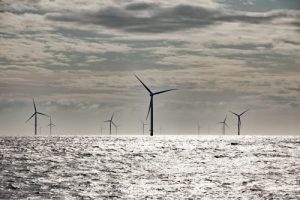Energy debate heats up as Drax finds potential £2bn savings for consumers

DRAX is fighting from being blown off course by the Government’s focus on wind power and has released a report which shows consumers could save £2bn by a broader approach to renewable energy.
The power station operator, which is 10 years into a project to convert from coal to biomass, commissioned NERA Economic Consulting and Imperial College to look at hidden costs that are not reflected in the contracts Government awards for renewable generation.
Currently the Government is planning three auctions for new renewable energy contracts – Contracts for Difference (CfDs) – planned over the next four years, and all are focused on offshore wind.
The research shows significant differences in the true costs of renewables once these additional costs are recognised.
These hidden costs, or whole system costs, are increasing as the UK becomes more reliant on solar and wind power – described as “intermittent renewables”.
Other forms of power generation are needed to support the system, and flex up and down to meet electricity demand. These costs are passed on to consumers via their energy bills.
Drax Group chief executive Dorothy Thompson said: “This independent research shows it is crucial we get the right mix of energy generation. The UK’s system faces growing challenges, from costs to reliability as traditional forms of generation are replaced with renewables.
“Intermittent renewables like wind and solar are vital as we continue to clean up energy generation, but they need to be backed up by a constant supply of electricity that can be flexed up and down to make sure the UK’s businesses and households always have power on demand.
“Opening up energy auctions to include other renewables could save consumers £2bn and with more biomass in the mix energy security is also boosted. Using the latest technology we’ve upgraded half our power station to run on compressed wood pellets, which give an 80% plus carbon saving against coal. With the right support we stand ready to finish the job.”
Drax’s research shows offshore wind could require a CfD of £127 per MWh (megawatt hour), onshore wind £92-97 per MWh, solar £96 per MWh, and biomass £84 per MWh.
Once these new support levels are modelled over the planned energy auctions, the new energy mix that could win contracts is shown to save consumers £1.9-£2.2bn.
NERA Economic Consulting Associate Director, Daniel Radov, added: “To ensure that we achieve environmental targets as efficiently as possible, it is essential to have policies in place that provide the right incentives to minimise costs.
“We hope the combination of Imperial’s whole-system energy modelling with NERA’s ability to model the details of the CfD auctions will contribute to a better understanding of the advantages and disadvantages of different policy approaches.”
Sectors
Comments
If you'd like to leave a comment, please register now for free or login







